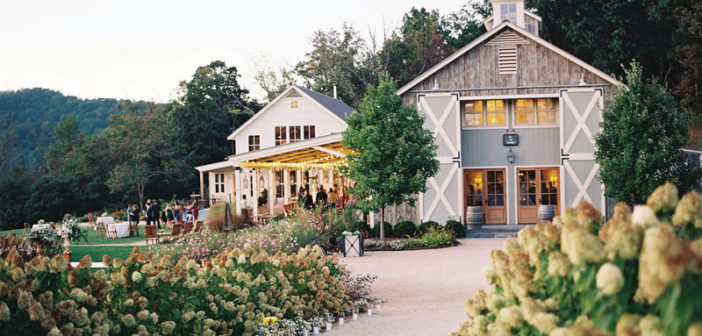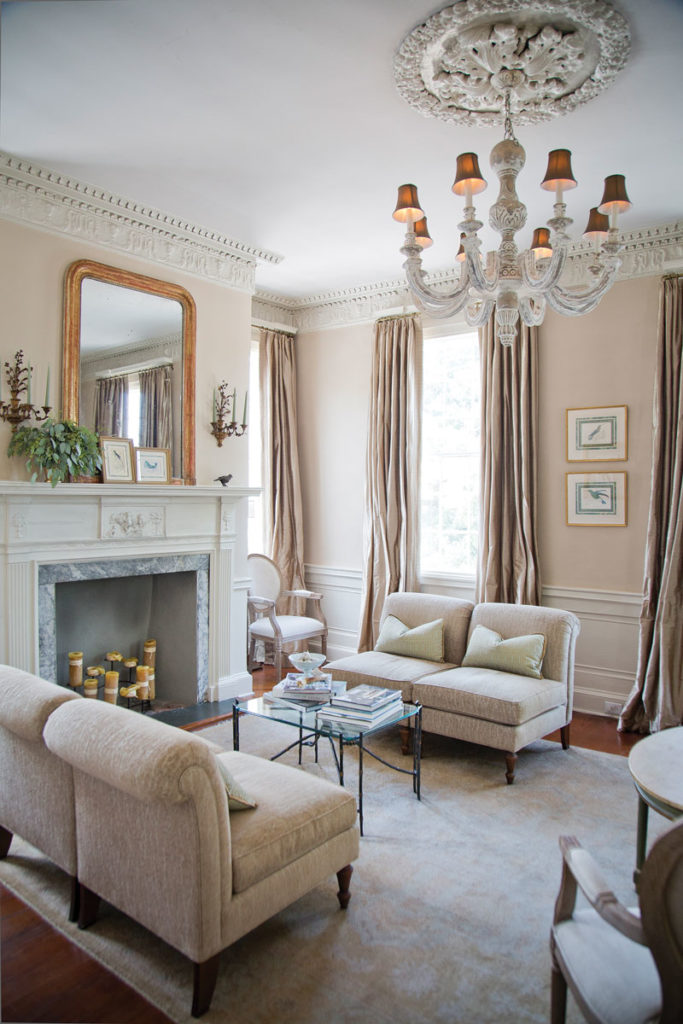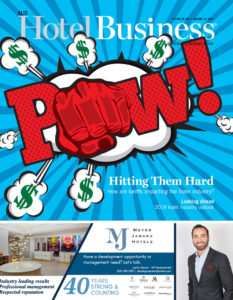EAST GARDEN, VA—Easton Porter Group is looking to grow—not just anywhere or with any property, however. An Easton Porter property is authentic and distinct—and, perhaps, even a bit historic.
With five properties spread across South Carolina and Virginia, the group is growing, with the hope of more than 15 properties within the next five years, according to Dean Porter Andrews, co-founder of Easton Porter Group and Revelry Hotels.
Easton Porter recently partnered with Hay Creek Hotels to create Revelry Hotels, an independent luxury hotels and resorts owner and operator with its joint venture equity investment fund.
With Revelry, acceleration is already underway, expanding Easton Porter’s portfolio to include Hay Creek Hotels properties—16 in eight states, with the majority in New England.
According to Porter Andrews, the group usually retains key management team members and property staff to make the ownership transition as seamless as possible.
“Easton Porter Group is about creating legacy properties in iconic city-center and resort destinations,” Porter Andrews said. “We’re consistent. Easton Porter Group properties represent our singular style of refined luxury—one that is warm, welcoming, sophisticated but never stodgy or stuffy, and our team echoes this in all our interactions with guests and clients.”
Easton Porter is currently on the search for independent lifestyle resorts in coastal, city-center locations including Boston; New York; Washington, DC; Charleston, SC; Miami; San Francisco; San Diego; and Los Angeles.
However, big city branding isn’t at play here; the group is focusing on historic properties that it can redevelop and rebrand for long-term strategic growth. These are often properties that need investment to launch on a new upscale business life cycle, Porter Andrews said.
“For design aesthetic, we seek properties that have historic bones,” he said.
An example of that is Zero George in Charleston, SC, a collection of historic homes, where the restaurant kitchen is in the original 1804 kitchen carriage house and also functions as a cooking school, immersing guests in not only history but local flavors as well.
“Our newest property under development in Upperville, VA, features a 1763 stone farmhouse. The guestrooms will be housed in historic log cabins. This will be a boutique resort in the Virginia hunt country. The equestrian theme is certainly prevalent, if not dominant, in this region, and our design will reflect and honor that, but with our own twist,” Porter Andrews said.
“Trendy” isn’t part of the Easton Porter vocabulary, and Porter Andrews said that the group avoids designing with trends in mind.
“Our interiors are always fresh and our guiding principle for all our designs is to be grounded in our setting and inspired by the property’s destination,” he said.
Destination properties, especially boutique, are often older and have a history, which may require renovations but informs how the group approaches design.
The history and architecture of the property are key factors and play a critical role in how we redesign and redevelop the property,” Porter Andrews said. “We look to honor the history throughout the property, while providing upgraded amenities and design for our modern travelers.”
Lynn Easton, partner in Easton Porter, adds these design elements with Easton Events, which specializes in wedding design, colors, lighting and luxury amenities.
“It adds diversity to our portfolio, and we have an expert, award-winning events team in Easton Events that provides the design elements and client relationship management processes,” Porter Andrews said.
The main focus of Easton Porter amenities, specifically, is about giving guests a sense of place with local experiences, which includes food and beverage options and even on-site classes.
“Our goal with the guest experience is to emphasize life enrichment, creativity and rejuvenation,” Porter Andrews said.
These include “insider” experiences, he said, that connect travelers and locals through photography outings, gallery visits, personal shopping at local boutiques, helicopter tours and even sailing lessons, all reflective of a property’s location. Also specific to location are the property’s F&B experiences, classes and offerings.
“The restaurant concept and design are critical components for all of our properties,” Porter Andrews said. “Rather than limit the restaurant offerings, we embrace and celebrate them with talented chefs and distinctive, locally influenced cuisine. Our Chef’s Table offerings are unique and showcase our culinary teams. Our restaurants are also freestanding businesses catering to the local community in addition to property guests, and we seek to make them approachable and welcoming.”
At Pippin Hill Farm and Vineyards in Charlottesville, VA, the property produces approximately 8,000 cases of wine annually, showcases local farm partners’ products in its kitchen and also offers seasonal cooking classes.
“We’re constantly working to develop new programming and agritourism initiatives that promote sustainability and viticulture and horticulture education opportunities for our guests,” Porter Andrews said.
The Easton Porter guest is usually an affluent traveler looking for these kinds of offerings, Porter Andrews said, seeking an individual destination property with appropriate activities, rather than a chain.
Strong leisure destinations are also at the forefront for future growth, including Santa Fe, NM; Sedona, AZ; Palm Springs, FL; Aspen, CO; and Napa, CA, with property sizes ranging from 50-200 rooms.
“We will design new high-end, a-la-carte restaurants, meeting and events spaces and guest amenities. We look to add value to all acquired properties, such as through the creation of new profit centers like residences, catering, clubs, rooftop bars, etc.,” Porter Andrews said. HB



